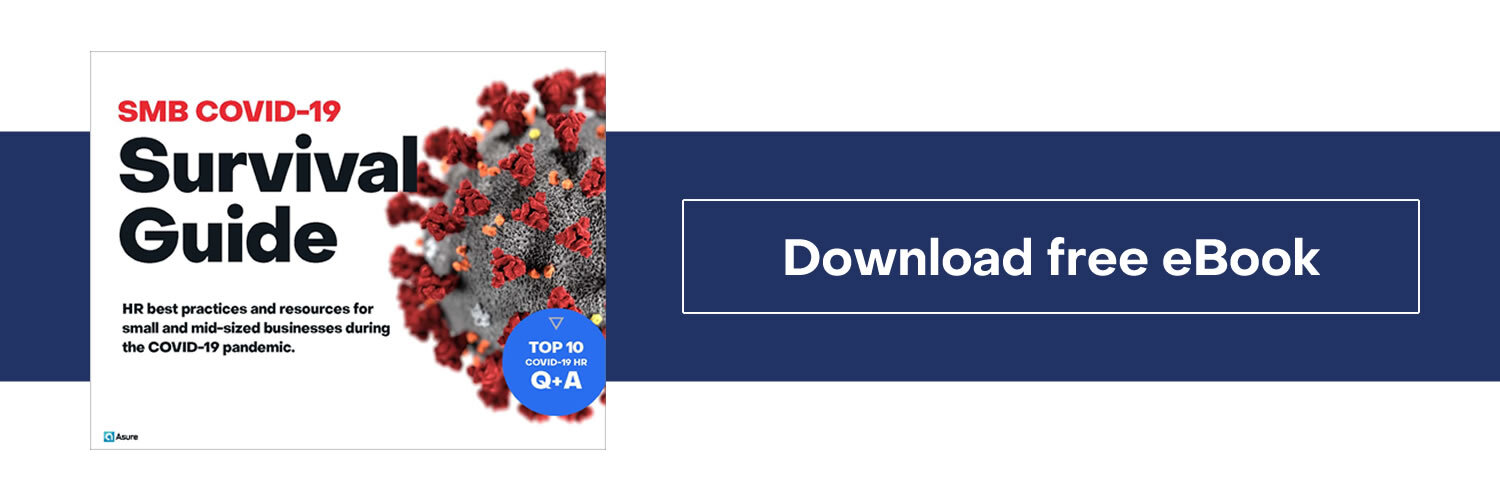Employers should check Federal, State and Municipal guidance often for updates that impact their business and their employees. To help you stay on top of this rapidly evolving situation, Asure has compiled a list of Federal, State, U.S. Territorial, and select Municipality websites with coronavirus updates and guidance.
As of March 16, 2020, more than 3,800 people in 49 states, Washington D.C., and three US territories have tested positive for Coronavirus. Its spread has quickened in the past week and has led government officials in several states and localities to close schools, restaurants, and bars. Check out this online map tracking every case of the Coronavirus in the US.
In response to new CDC recommendations, many nonessential retail stores like Apple, Patagonia, and REI have elected to close for two weeks to help flatten the curve. Asure is closely monitoring new legislation as well as updates to regulatory requirements that may be enacted as a response to COVID-19.
As the situation and response to COVID-19 unfolds, it’s important to keep your employees healthy and informed. It’s prudent for your business to create and follow a plan in the event that your employees are affected by the Coronavirus—whether it’s due to the virus itself or the need to be flexible for employees who need to stay home with kids who are out of school or don’t have access to mass transit to get to work.
Here are some practical ways your business can prepare and do its part to slow the spread and prevent exposure in the workplace.
OSHA Guidance
OSHA has launched a website and publication dedicated to providing information for workers and employers about the evolving Coronavirus outbreak and response. In the guidance publication, OSHA lays out steps all employers can take to reduce workers’ risk of COVID-19 exposure as well as definitions for how to classify worker exposure levels. While this guidance creates no new legal obligations, employers must comply with recordkeeping requirements and record any COVID-19 cases if an employee contracts the virus during work hours. All businesses should also check any state-specific OSHA standards that may be applicable to you.
Paid Leave Coverage and Options
-
Family and Medical Leave (FMLA) Coverage. Check with the Department of Labor for information about employees’ eligibility for FMLA leave in the event of COVID-19 illness. Most employers with 50 or more employees are covered by FMLA which provides up to 12 weeks of unpaid leave plus job protection. This coverage is for both the employee who may become ill due to COVID-19 (or other flu-like illness) or if the employee stays home to care for ill family members.
-
State and Local Paid Leave Options. Many states and localities have their own paid sick leave or family and medical leave ordinances in effect. Check your state or local paid leave requirements to ensure your business remains in compliance.
-
New and Updated Emergency Paid Sick Leave Laws. Colorado was the first state to pass an emergency paid sick leave bill but there are many states that have bills pending including Kentucky, Ohio, Washington, California, and San Francisco. Be sure to check your state and local governments for the latest updates.
Families First Coronavirus Response Act
On March 14, the House passed the Families First Coronavirus Response Act to guarantee free Coronavirus testing and paid emergency leave. Additionally it strengthens unemployment insurance, food security initiatives, and increases Medicaid funding to states.
Minimizing Exposure Risk for Employers and Employees
Businesses should follow CDC updates and guidance regarding travel restrictions both domestically and abroad. The CDC now recommends that organizers cancel or postpone in-person events consisting of 50 people or more for the next 8 weeks. Learn more about the CDC’s guidance on mass gatherings.
Additionally, continue to follow good personal hygiene practices and avoid close contact with individuals within 6 feet. All businesses should also ensure all public areas are cleaned and disinfected regularly. Encourage employees to stay home when sick. Communication is key to help protect the health and safety of your employees. Be sure to provide guidance to your employees about how they can safely work from home and stay connected through your online portal, video conferencing, or chat. Provide employees with updates to your policies and procedures to make it easier for them to request sick days or get time-off approval.

